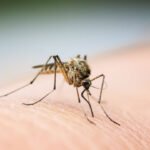Ageing is an unavoidable part of life, but does it need to be? Improving longevity and quality of life were two key themes in research in 2023. Below are the best anti-aging articles published on New Atlas in 2023.
Moderately cutting calories activates healthy aging genes
While most anti-aging research this year focused on finding ways to slow down or reverse the effects of aging, others focused on more attainable but still effective approaches.
For instance, one study found that a modest 12% decrease in daily calorie intake was sufficient to activate most of the biological pathways associated with normal aging. The researchers also found that calorie restriction significantly altered gene expression, including inflammatory-related genes that play an important role in aging.
Protein boost improves brain function in older monkeys
Our kidneys secrete a protein called Klotho that helps regulate molecular pathways related to aging. Although the exact mechanism of action of Klotho is not fully understood, what we do know is that it improves cognitive function in elderly monkeys.
Injections of Klotho were given to rhesus monkeys aged on average 22 years (roughly the human equivalent of 65). The researchers raised the levels of Klotho in the rhesus monkeys to levels comparable to those seen in juvenile monkeys. After the injection, the elderly monkeys were 20% more able to navigate complex mazes to look for a treat.
Does Klotho work similarly in humans? Only time will tell.
Natural amino acid rolls back the hallmarks of aging in animals
There are several signs of aging, such as chronic low-grade inflammation, DNA damage, and the build-up of senescent cells (cells that stop dividing but do not die out).
Because taurine is the most abundant naturally-occurring amino acid in the body, and plays a key role in cell growth, nutrition, and survival, researchers looked into its effects on aging. By administering taurine to mouse, monkey, and worm cells, they found that taurine had a positive impact on the signs of aging, leading to an overall increase in health and longevity.
AI identifies natural anti-aging chemicals
When we are young, our immune system clears these so-called “sleepy” senescent cells from our bodies. But as we get older, our immune systems become less efficient at clearing these cells.
In order to identify the most promising senolytics – or “senescent cell clearers” – researchers trained their machine-learning model using academic papers, commercial patent information and library information from a wide variety of FDA-approved drug or compound-based clinical trials. They identified three candidate compounds – “ginkgetin”, “periplocin” and “oleandrin” – that remove senescent cells without damaging healthy ones. These are all natural compounds found in traditional herbal medicinal products.











